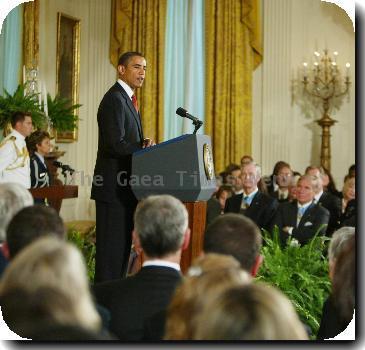University of Nebraska regents vote not to further restrict embryonic stem-cell research rules
By Margery A. Beck, APFriday, November 20, 2009
U. of Neb. board votes down stem-cell rule changes
LINCOLN, Neb. — The University of Nebraska’s governing board has voted down a proposal to restrict the school’s rules governing embryonic stem-cell research beyond what the federal government allows.
The eight-member Board of Regents voted 4-4 Friday, defeating the resolution that would have restricted stem cell experiments to cell lines approved under President George W. Bush. President Barack Obama removed government funding restrictions on new stem-cell lines earlier this year.
A majority of votes is needed for a proposal to pass.
A state law passed last year prohibits the use of state resources for creating or destroying embryos for research.
Supporters of stem-cell research hope it will lead to cures for diseases such as diabetes, Parkinson’s and Alzheimer’s.
THIS IS A BREAKING NEWS UPDATE. Check back soon for further information. AP’s earlier story is below.
OMAHA, Neb. (AP) — The University of Nebraska’s governing board was expected to vote Friday on a resolution that would limit stem-cell research at the university system’s facilities to rules approved under former President George W. Bush.
The vote by the Board of Regents would come eight months after President Barack Obama removed government funding restrictions on new stem-cell lines.
Supporters of stem-cell research hope it will lead to cures for diseases such as diabetes, Parkinson’s and Alzheimer’s. Opponents believe embryos, which are destroyed during the research, are the starting point of human life and destroying them is immoral.
“Overall, the debate still deeply divides, because any concession on the morality of embryo research is still seen by pro-life people as a concession that the embryo is not a person,” said Arthur Caplan, director of the Center for Bioethics at the University of Pennsylvania. “Limits on research are still seen by pro-research patient advocacy groups and scientists as putting the interests of a possible person ahead of real people, here and now, with real diseases. Those are tough gaps to bridge.”
The resolution comes 20 months after a state law was enacted prohibiting the use of state resources for creating or destroying embryos for research. That law had been a compromise between abortion opponents and University of Nebraska researchers in which abortion foes agreed not to push for further legislation if certain conditions were met.
Some supporters of the researchers have said that agreement extends to the regents. But abortion opponents say the compromise was never meant to keep them from lobbying the regents for policy changes.
The resolution would need five votes from the eight-member board to pass. A split vote means the proposal fails.
Jim McClurg, a regent endorsed by the anti-abortion group Nebraska Right to Life, did not sign off on the resolution and has said he will wait to hear public comments before deciding how he will vote on the resolution.
Those on both sides must weigh moral convictions against university prosperity, Caplan said.
“With some states allowing (broadened) embryonic stem-cell research, people in the state of Nebraska may worry that they’re going lose their best scientists to other schools,” Caplan said. “If Nebraska had an aspiration to become a world-class biotech science incubator, it’s dangerous to put restrictions on stem-cell research.
“If Nebraska doesn’t care or doesn’t think that’s plausible, then the moral opposition to stem-cell research gets a little bit more political sway.”
On the Net:
University of Nebraska, nebraska.edu/
Tags: Abortion Controversy, Barack Obama, Lincoln, Medical Research, Nebraska, North America, Political Ethics, Stem Cell Research, Stem Cell Research Controversy, United States

